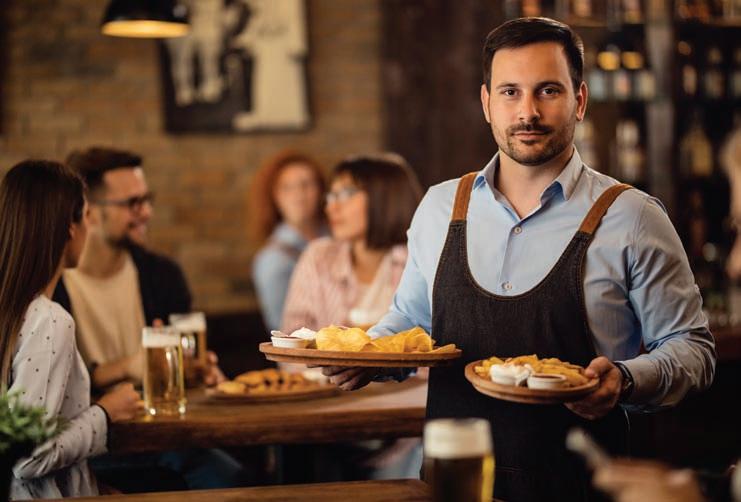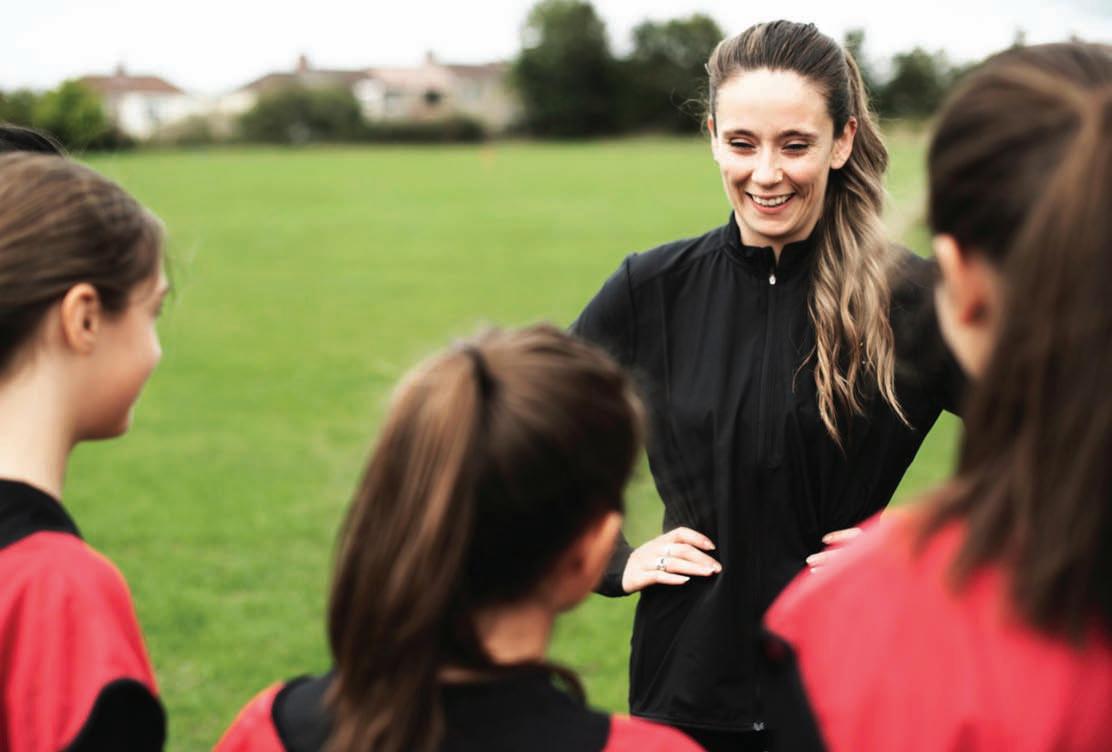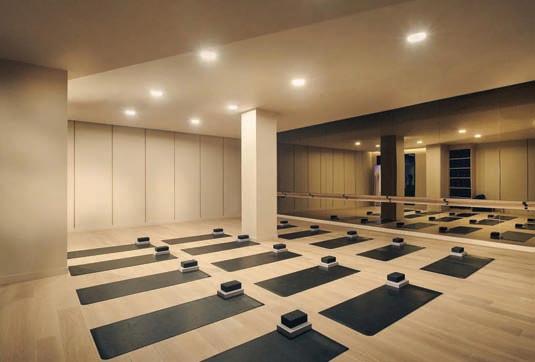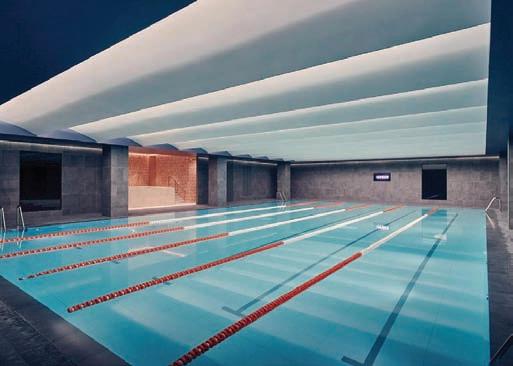
7 minute read
Insight
Career options
Leisure sectors attracting five times as many young people as there are jobs available
■■The sector with the greatest shortfall in interest is also within leisure, with only 1.5 per cent of young UK people currently showing an interest in a career in hospitality

Five times as many young people want to work in leisure sectors such as sport, arts, culture and entertainment as there are jobs available. The figure comes from a major report published by charity education and employers, which suggests that a number of industry sectors – including those within leisure – could have the pick of talent due to an abundance of applicants. The report, based on a survey of 7,000 young people aged 14-18, does, however, also indicate that the aspirations of young people in the uK are poles apart from the reality of the labour market, with significant implications for the economy. While some sectors are "oversubscribed" with young people wanting to work in it, many others
■■Five times as many young people want to work in sport as there are jobs available


will face a struggle to fill all available jobs with homegrown talent.
The sector with the greatest shortfall in interest is also within leisure. Only 1.5 per cent of young uK people are currently showing an interest in a career in hospitality, catering and accommodation, while the sector needs almost seven times as many students (9.7 per cent of the workforce) to fill all the current vacancies.
The report claims that the findings show there is a "disconnect between aspirations and demand in almost half of uK sectors" – due to the aspirations of young people in the uK being poles apart from the reality of the labour market. This, the report says, will have "significant implications for the economy".
According to John Yarham, CeO of The Careers & enterprise
Company, the disconnect could be down to young people not realising the full opportunities off ered by the sectors they seemingly dislike. "As the research shows, the more young people meet with real people in real jobs the more options they have about their own career paths," Yarham said.
"It confirms an abiding truth – you can’t be what you can’t see.
"This study demonstrates that connecting young people with employers opens their eyes to the real opportunities of the job market and guides them to make more informed choices.
"It reinforces the vital importance of the concerted and collective eff ort to ensure our young people meet with a rich and diverse range of people from the world of work to enhance their prospects and life chances.” ●

■■Some sectors are "oversubscribed" with young people wanting to work in them

■■The indoor cycling amphitheatre has unique light displays and soundtracks designed for each class
A new space
Full-service fitness operator Third Space has opened its sixth club in Islington

■■Colin Waggett
Third space has opened its sixth full-service club in the heart of Islington, London.
Located at the Islington square retail and leisure complex in London, the £10m club covers 47,000sq ft and is the largest health club to open in London for more than 10 years.
At the heart of the club is a 7,000sq ft "arena space" for flexible training, featuring a custom-built running track, dedicated strength training area, a bespoke functional training rig and performance cardio areas with Myzone heart-rate connectivity. The bespoke functional training rig was supplied by eXF Fitness and incorporates a unique boxing bag rail with four box bags and monkey bars. As the club is situated underground, a bespoke rig was required due to height limitations.
In the strength area, Pulse Fitness has supplied 15 stations from its H Range strength Line, with all equipment being created in a bespoke sand black and
■■Located at the Islington Square retail and leisure complex in London, the £10m club covers 47,000sq ft










completed with Third space branding to reflect the sleek aesthetic of the club. ” Wet areas include a six-lane, 20m swimming pool, saunas and streamrooms. In addition, the club houses an indoor cycling amphitheatre – with unique light displays and soundtracks designed for each class.
As well as a premium club facilities for adults, Third space Islington square will incorporate The Little space – a separate, dedicated kids’ club. Little space will have its own shallow training pool, sports
hall, créche, dance studio, climbing area, athletic rig and restaurant. It will off er a range of exercise classes for children, as well as family play sessions and swimming lessons.
speaking about the concept in 2018, Third space CeO Colin Waggett said: "The Little space is a good example of us looking at each new market and asking: ‘What do people here really want?’. "We did around 300 doorstep interviews and focus groups to make sure our concept was right." ●

Disability issues
Research project to chart physical activity needs of families with disabled children

Athree-year research project will look to provide the physical activity industry with a better understanding of the needs of families with disabled children. The ukactive Research Institute has teamed up with national disability charity sense for the project, which will explore the barriers and motivations of families with disability needs.
It will look at access to physical activity provision, the challenges of families being active together, the impact on siblings with no disability and whether there are differences between community and education provision. The research project will be divided into two phases, beginning with a consultation to understand the complex needs of families with disabled children in order to inform
■■The research will explore the barriers and motivations of families with disability needs


It’s our goal to establish more opportunities for children with complex disabilities to be able to lead active lives
the development and delivery of sport and physical activity sessions, family days and other initiatives. Parents of disabled children are encouraged to off er their views on the challenges they face by completing an online survey by sunday 15 March. Following the initial research, sense will establish a national activity programme for disabled children and evaluate the impact of it on the child and the wider family.
The second phase will see ukactive’s Research Institute measure and evaluate interventions that sense provides for families with children who have complex disabilities and non-disabled siblings. "The results of this new research programme will be used to create a nationwide programme of sport and physical activity opportunities to help tackle the issue of inactivity,"
said Alissa Ayling, head of sport and physical activity at sense. "We know that children with complex disabilities often miss out on participating in sport and physical exercise, which is vital for staying healthy, learning new skills and making friends. "It’s our goal to establish more sport and play opportunities for children with complex disabilities to be able to lead happy, healthy and active lives.”
Matthew Wade, senior researcher at ukactive, said: "Our new partnership with sense marks an exciting new chapter in our work to better understand the inequalities facing families with disabled children who want to be more active.
"ukactive’s members want to create a level playing field for all children, with opportunities for every child to be more active, no matter where they live or what disabilities they have." ●

■■Following the initial research, Sense will establish a national activity programme for disabled children









